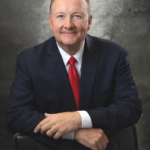
Aftermath – The Psychological Recovery Process Following Mass Shootings
Information
Recorded
-
-
Location
-
Southern Hemisphere I
1200 Epcot Resorts Boulevard
Lake Buena Vista, FL 32830
Learning Objectives
Participants will be able to:
-
Compare and list out the differences in big “T” and little “t” trauma response in the aftermath of mass shootings or community crisis.
-
Explain how to reduce the risk of developing serious conditions like ASD after a mass shooting or community crisis.
-
Identify and describe at least three red flags and warning signs for students, educators, employees and first-responders affected by traumatic stress and how to create safe interventions.
-
Identify the difference in psychological risk between traumatic stress and secondary traumatic stress in the weeks following a community crisis.
Description
Traumatic events like school shootings continue to rise and create hopelessness. The spike in community trauma has the potential to create secondary traumatic stress leading to serious mental health conditions like PTSD or ASD. Cleveland Clinic reports 6%-33% of those who live through a traumatic event will develop Acute Stress Disorder in the aftermath of the crisis.. These symptoms can cross all age groups after a community trauma, leaving many counselors overwhelmed about what how to prevent worsening psychological symptoms. What should a counselor do or say to help, especially in the immediate aftermath following a mass shooting?
Many practitioners are not trained in how to spot Acute Stress Disorder (ASD) which is a common psychological stress response after trauma. Symptoms can appear within three to thirty days of living through a traumatic event. Without early intervention some will experience self-destructive behavior since every day counts in the recovery process. Sadly, those who ignore these symptoms may experience worsening of their own mental health in the first few days and weeks post-crisis event. Symptoms in the aftermath of community crisis may include-anxiety, intense fear, or helplessness and difficulty concentrating; recurring traumatic memories or hypervigilance; persistent difficulty feeling positive emotions like happiness or love; chronic sleep loss; feeling numb; avoiding situations, places, or other reminders of the traumatic event, which is challenging for school or workplace mass shootings since students and employees often return to the same location where they experienced trauma. There are stages of rapid psychological intervention in the aftermath of a community crisis. Are you skilled at identifying the stages and creating a psychological response map for those directly exposed to traumatic stress so your community can heal?
Target Audience
- Counselor
- Marriage & Family Therapist
- Nurses
- Physicians
- Psychologist
- Social Worker
- Substance Use Disorder Professionals
Presenters

Dwight Bain is a Nationally Certified Counselor who has spoken to thousands of audiences about mental health and behavioral change. He has influenced positive change in organizations like Disney, Toyota, DuPont, The United Way, Advent Health, the Florida Department of Education, and The United States Army. Bain is an author who has been interviewed on over 500 radio and television stations; quoted in over 20 books and 100 newspapers/websites including: New York Times, Washington Post, Chicago Tribune, Los Angeles Times, Atlanta Journal, Orlando Sentinel, FoxBusiness.com, MSNBC.com and Yahoo! Dwight’s skill as a communicator led Toastmaster to select him as one of the best speakers in Florida and his community work led to being selected by his peers as the Florida Mental Health Counselor of the Year. He is a lifelong resident of Orlando where he lives with his wife Sheila and an assortment of rescue pets. After 30 years together they always have suitcases packed ready for their next adventure.
Financially Sponsored By
- The Global Exchange Conference - Exchange Events